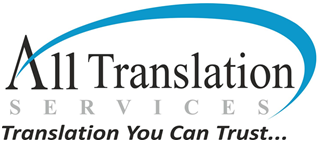Beyond English & French: Serving Canada's Indigenous Languages with Expertise
___Canada, known for its cultural diversity and rich linguistic tapestry, has long been celebrated for its bilingual status with English and Canadian French as official languages. However, amidst this linguistic diversity, the country is also home to a wealth of Indigenous languages, each carrying centuries of cultural heritage and identity.
Looking for a local language translation service provider in Portuguese, Punjabi, Romanian, Russian, Sinhala or in Spanish language? Our Toronto translation company will be happy to help you.
In recent years, there has been a growing recognition of the importance of preserving and revitalizing these languages, leading to a surge in efforts to provide expert language services for Canada’s Indigenous communities.
The Landscape of Indigenous Languages:
Canada is home to over 70 Indigenous languages, reflecting the deep roots and diverse traditions of the First Nations, Métis, and Inuit peoples. These languages are not only a means of communication but also repositories of unique worldviews, stories, and traditions passed down through generations. Unfortunately, many Indigenous languages are endangered, facing the threat of extinction due to historical factors, colonization, and the dominance of English and French.
Challenges in Language Preservation:
Preserving Indigenous languages is a complex challenge that involves addressing historical traumas, community dynamics, and systemic issues. However, one crucial aspect of language preservation lies in providing expert language services that cater specifically to the needs of Indigenous communities. This involves translation, interpretation, and language education services that go beyond the conventional English-French paradigm.
Expertise in Action:
Recognizing the urgent need to preserve and revitalize Indigenous languages, various organizations and individuals have stepped up to offer their expertise. Linguists, language specialists, and translators are working closely with Indigenous communities to create tailored language services that honor cultural nuances and linguistic intricacies. These experts collaborate directly with community members, respecting their knowledge and incorporating it into language revitalization efforts.
Translation and Interpretation Services:
One significant avenue of support for Indigenous languages is through translation and interpretation services. Whether it’s translating educational materials, legal documents, or health information, experts proficient in both the Indigenous language and English or French bridge communication gaps. This ensures that essential information is accessible to the community in a culturally sensitive manner.
Language Technology Advancements:
In the digital age, language technology has become a powerful ally in language preservation efforts. Speech recognition, machine translation, and language learning apps are being adapted and developed for Indigenous languages, making them more accessible and engaging for the younger generations. This technological support, when combined with community-led initiatives, contributes to the revitalization of Indigenous languages in innovative ways.
Community Empowerment and Collaboration:
Central to any successful language preservation initiative is the empowerment of Indigenous communities themselves. Expertise in this context means not imposing external solutions but collaborating with communities to understand their unique needs and aspirations. This collaborative approach ensures that language services are community-driven, sustainable, and culturally relevant.
Conclusion:
As Canada seeks to strengthen its commitment to linguistic diversity, it is imperative to extend language services beyond the official languages of English and French. Preserving and revitalizing Indigenous languages requires expertise that is grounded in cultural sensitivity, community collaboration, and innovative approaches. By recognizing the importance of linguistic diversity and supporting the expertise of those working with Indigenous communities, Canada can take significant strides towards preserving and celebrating the unique heritage embedded in its Indigenous languages.
